Apologetics
As a part of my journey to faith I had a two-hour conversation with Padre Appleby who was based at the Army headquarters where I was working. We talked about a lot of things, but at the time I was fascinated with Christian aplogetics - that is explaining the evidence for the truth of God's existence and the veracity of the Bible and particularly how these are supported by science and other disciplines. I'd already done a lot of investigating and I was absolutely buzzing with what I'd discovered. He said a very wise thing; he told me that in time those things wouldn't matter at all as once I grew in faith I would feel the truth of the Bible, and that would be enough for me. And he was completely correct.
However, reconciling the Bible with my (albeit limited) understanding of science was fundamental to accepting its authority - frankly as far as I was concerned if I doubted a single word of it then I couldn't rely on any of it. While I can now feel the truth and beauty of God's existence in a Bible verse, as I was coming to faith, reconciling his claims with the world I lived in was absolutely fundamental to my intellectual acceptance of what my heart was already telling me back then. As John C. Lennox points out, faith is a response to evidence, not a rejoicing in the absence of it. Therefore, it is only right that we should examine that evidence, and consider it well.
Remember that many leading scientists (Boyle, Faraday, Newton, Maxwell, Compton, Fisher, Gibbs, Dalton, Gauss, even George Lemaitre the father of the Big Bang Theory) have used their field to seek to explain how God made the world, not as an alternative to Him. Nor is belief in God in the scientific community as rare as you may believe: as recently as 1996 in a survey of prominent scientists 39.6% of respondents stated that they believed in a God who answered prayer. I think it only fair to point out that only 60% of scientists invited to do so responded to the survey, but even so, that is a significant number of very intelligent people who feel that in their extensive studies they've found nothing to disprove the existence of God. Furthermore, there are many scientists who say that it is the insights from their scientific work that have brought them to faith.
If you can examine evidence with an open mind, what you find may surprise you. These days I still find apologetics fascinating as they seem to confirm the truth of the Bible again and again, but they are not fundamental to my believing. Below are a few points to consider and some places where you can investigate more deeply if these thoughts interest you.
A chance occurance?
The origins of the universe are tough to get your head around no matter what you believe. If I believe that the universe had a beginning, what was there before it? In some form or other I always need a previous start point, but at the same time finding a true start point is impossible because I always return to the question, 'yes, but before that...?'. Frankly, it hurts my head a bit when I think about it. And then of course there is the question of why and how it suddenly appeared, out of nothing, all on its own. Especially when there was nothing in existance to make it happen or for it to be made from.
The Bible teaches that God is eternal (he's always existed) and that He created the universe (we'd best leave the 'when' bit for later). That I can accept - my head stops hurting. It makes sense. But for that to work, I need to accept that God exists. For me, that took a lot of investigating.
One of the first questions I looked at was whether scientific knowledge was incompatible with the biblical account of our origins. Then when it became evident that there wasn't any conflict (more of that below) I started examing whether the universe is even possible without a creator. Because if I cannot physically exist without Him, and if there's one thing that I do know it is that I exist... then that changes everything.
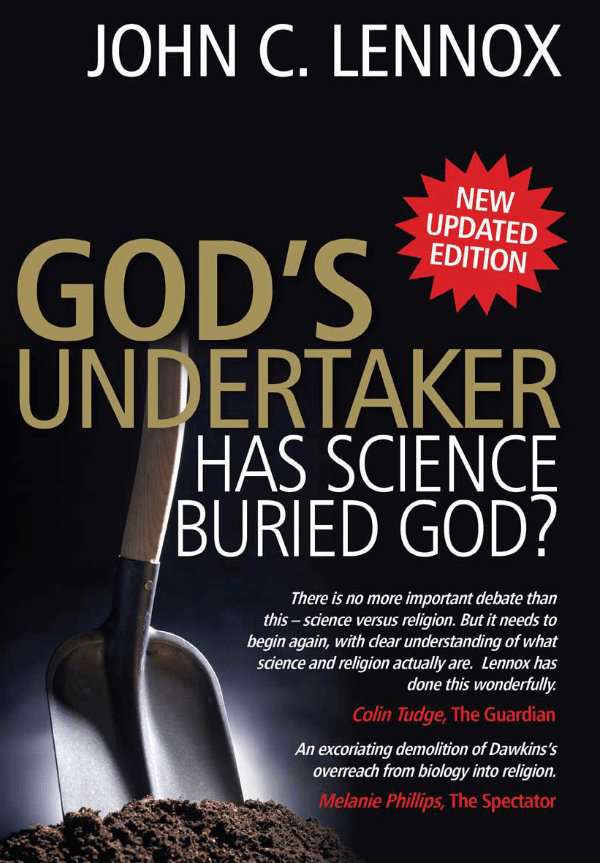
John C Lennox is a Professor of Mathematics at Oxford University. He's written some excellent books and if you'd like to dig a little deeper I'd really recommend this one.
So to do that, let's set aside the issues of what caused it to be here and what was here before the universe as we know it, and just focus on what the chances are of it happening as it did without a creator.
There is no other area of life were I can think of something changing or appearing without cause of some kind, but for the sake of argument let's leave causality aside. Let's look at the chances of the universe 'happening' as it did so that life is possible. Here are three examples of scientific facts (of which there are a lot, lot more!) that would suggest that, while not impossible, it is highly unlikely:
- If nuclear ground state energy levels varied by more than 1% the universe could not sustain life.
- If the ratio of the nuclear strong force to the electromagnetic force had been different by 1 part in 100,000,000,000,000,000 (that's one in one hundred quadrillion apparently) no stars could have been formed.
- You need both big stars and small stars for the universe to exist. For that to be the case that same ratio cannot vary by as much as one part in 100,000,000,000,000,000,000,000,000,000,000,000,000,000. That number is so big that there are no words to express it.
Those are just a few examples of the precision required to make a life-sustaining universe possible. Assuming that the universe is all good, we still need a bit more luck for a planet to support life. We need:
- the right-sized sun
- to be the right distance from that sun
- for the planet to spin at the correct speed
- for the planet to be tilted at the right angle
- and a lot, lot more.
Astrophysicist Hugh Ross calculates that the chances of that happening are around 1 in 10,000,000,000,000,000,000,000,000,000,000 (that's one in ten nonmillion apparently).
We can consider that to be a finely-tuned planet in a finely-tuned universe (i.e. tuned by God), or that we're really rather lucky that (without cause) all this just 'happened' on its own. Science's answer to that is two fold. Firstly, 'well there you go, it IS possible'. I can't argue with that - but I think we can all agree that if those numbers are correct then it's pretty unlikely. The other is that there are an infinite number of parallel universes (yes, they didn't make it up just for Dr Strange in the Marvel films) so therefore it was bound to happen in one of them. There is no scientific basis that I am aware of for that theory and it seems that it exists because without an alternative theory of somekind to explain away the improbability of those numbers the only alternative is a creator. Because if you decide you cannot or will not believe in God, the maths really does demand an alternative solution.
I personally feel that, provided the rest of the evidence for God aligns (and that's a big if), then actually my faith is not blind and makes a lot more sense than 'luck' or those ridiculously high numbers. I do understand that science makes new discoveries all of the time, but at the moment the evidence is extremely difficult to reconcile with a random happening, in which everything appeared out of nothing, with no cause, in a time frame which is impossible for the human mind, which operates in linear time, to comprehend (i.e. it is impossible for 'everything' not to have a beginning, but it is also impossible for it to have a beginning because... what was before it?). A Christian would argue that the time is eternity and that the cause is God. And I think the above suggests that conclusion is neither lazy nor weak-minded - it's logical.
DNA = data = intelligence
A single strand of DNA contains enough information to fill 5,000 books. That's 5,000 books of intelligent data. That data is so intricate and so precise that we see terrible consequences when it is damaged or even slightly incomplete.
Is it possible that the information-carrying properties of DNA have emerged automatically out of matter by a mindless, unguided, process? There is nowhere else in human history that we have found recorded data and not drawn the logical conclusion that it is the product of intelligence. Dr Francis Collins who led the Human Genome Project (that first sequenced DNA) is himself a Christian. He states, 'If you see God as the creator of the universe – in all of its amazing complexity, diversity and awesome beauty – then science, which is, of course, a means of exploring nature, also becomes a means of exploring God’s creative abilities.'
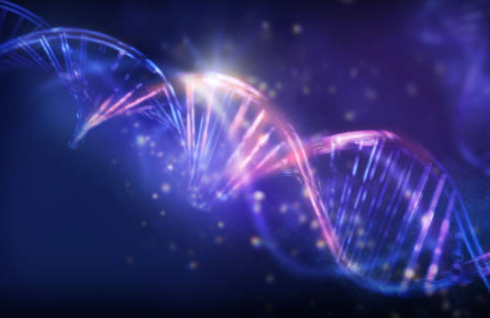
The Human Genome Project (HGP) took 13 years to sequence the human genome. The man who led the project is a Christian.
The Big Bang Theory
The Big Bang Theory is that all the matter in the universe exploded into existence in a millisecond. That fits nicely with the Bible which says God said, and there was.
Space.com defines the Big Bang as 'In the beginning, there was an infinitely dense, tiny ball of matter. Then, it all went bang, giving rise to the atoms, molecules, stars and galaxies we see today.'
Where that explanation falls short is in explaining where that infinitely dense, tiny ball of matter came from, and why it went 'bang'. But there is absolutely nothing in the Big Bang theory that contradicts the Bible. The Bible fills the gaps in that it says God did it. It is fascinating to think that the bible account, written some 4,000 years ago, fits with scientific knowledge only gained 100 years ago.
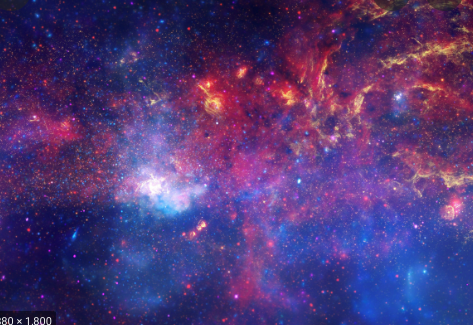
The Science of the Big Bang has two huge gaps: the how and they why? The Bible says God and for His glory.
Young or Old Earth?
Some Christians use the geneologies in the Bible to date the Earth and state that it is therefore approximately 6,000 years old. Some (myself included) think that there is more than ample evidence to suggest that it is far older than that, and that there is nothing in the Bible to contradict the 13.8 billion years which is generally accepted within the scientific community. I think they feel that trusting the Bible over science is for them a matter of faith. I respect that, but I don't see the necessity to do so.
The big issue comes with the 'seven days of creation'. There are several theories which deal with that in a way where we can see clear compatibility with the Biblical account. Firstly, the week of creation is a human invention. The Bible does not speak of a week - it speaks of seven distinct days, each of which may have been separated by millions or billions of years. Interestingly, the order of creation on those days matches with the scientific evidence (life from the seas, vegetation before animals, human beings coming right at the end etc.). This is actually my preferred theory. But other people argue that the language used is ambiguous and suggest that 'days' could be translated in other ways and suggest far longer time durations than 24 hours. Again, this would mean that there is no contradiction between Science and the Bible.
Whichever you believe, not knowing and even not caring are all fine, provided that belief does not affect your belief in God.

Another book by John C Lennox, the 7 Days that Divide the World discusses the various ways that the creation account (and particularly the timescales involved) can be understood and how each of these fits with or contradicts the scientific record.
The origins of life
This picture is of a mycoplasma mycoides. It is the simplest lifeform on the planet - a bacterium that only has 525 genes and, in the words of the National Geographic, 'it is one of the simplest ever seen'. My point is, it's not actually very simple at all, is it? The idea is that something similar to this spontaneously pinged into existence. On it's own. It just 'happened'. When you consider 525 genes, and when you consider the complexity of the image, does that really ring true for you?
And if we talk about the first animals, what luck that the first males and females developed simultaneously so that they could reproduce. How convenient that was if that happened all on its own. And, without wishing to appear flippant, which did come first, the chicken or the egg? That is a very genuine question.

Mycoplasma mycoides: the incredibly complex simplest form of life on Planet Earth. Could something of similarly 'simple' form just 'ping' into existance to make life on Earth possible?
Such complexity without design?
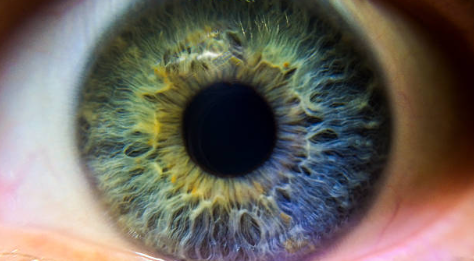
The human eye can take in a million simultanious impressions. It focuses on objects at differing distances and can function in varied light. And it is beautiful.
It's an old cliché within the creation debate that if you found a clockwork watch having never seen one before, looking at the cogs and wheels within, perfectly set to work together to measure time, it would be evident that someone had made that watch and that it hadn't just appeared without a creator. It is hard to imagine anyone ever finding that watch and assuming that it just appeared, or gradually developed out of a single, very simple cog into its current form. Evidently the watch is the result of intelligence and is not the result of a random event that somehow occurred without cause. Cliché or not, it's obviously true. And yet many people take the infinitely greater intricacies of nature for granted and assume that they did just that.
When you truly consider a living creature, does it look as though it could have come into being without design? The incredible complexity of organs, blood, nervous and respiratory systems, each working together and vital to its survival. Is it likely that the mystery of the brain, the precision of the eyes... just happened? And organs that are dependant on each other happened simultaneously? Was the blood there first or was it the heart required to pump it, and what could its purpose be without lungs to take the oxygen from the air breathed? And how could a body survive without that process that requires blood, heart, and lungs to operate together? For me to assume all of that to be the case requires a lot of faith.
Considered individually each species is incredible, but when we appreciate that beyond that they are interdependent on each other within finely balanced eco-systems and habitats, we find a truly mind-blowing level of complexity.
What of the miracle of the water cycle which provides fresh water across the planet? The perfect cycle where surplus rain is not wasted but collects into rivers that wash into seas, where it is once again purified through evaporation, rising skywards to collect in clouds that are then blown inland for it to fall once again as rain for the creatures and vegetation which require it. A constant cycle operating around us without which life would be impossible.
We live in a natural system that is so finely balanced that seemingly small changes such as a degree rise in temperature or a reduced bumble bee population are international crises that even threaten possible global extinction.
Whether on an individual, local or global scale, do such finely-balanced natural systems not point to design?
When natural habitats are allowed to operate naturally it is incredible how well balanced they are. As if they are designed to do so?
Adaptation without design?
The fact that plants and animals have adapted to thrive in their environments in itself in no way contradicts the Bible. We have a simple choice to make - did those changes happen through natural selection or through God's guiding hand. I personally believe that the second is true, but even if an animal changes without God's intervention that doesn't mean that it was not created in its beginnings.
Whatever you feel about the processes involved, you can believe in dinosaurs (I myself have no doubt that dinosaurs existed) and evolution (personally, I believe in changes and adaptations, just not without God's intervention) and still believe in the God of the Bible.

How many thousands of generations of these hummingbirds would have had to have evolved before they could reach the nectar in these flowers? How would that actually work?
The Great Flood. Noah. Really?
It is easy at first glance to dismiss the biblical account of Noah's flood as just a story. Other historians point to similar accounts in other cultures as evidence that it is just a story and not a very original one at that! However, the account of the flood does stand up to closer scrutiny. Firstly, the story appearing in other cultures is to be expected if the flood was on the scale described in the Bible. The story of Noah's Ark is one of the more familiar bible stories and one children are often familiar with, but it is the story of a terrifying global event that would certainly be remembered and understandably recorded by later generations and not just appearing in the biblical account in Genesis.

According to the Bible, the floodwaters rose from the ground as well as falling as rain.
Another very interesting scientific point is easily missed on a first reading of the biblical account. It did indeed rain for forty days and forty nights, but that was not the only source of floodwaters mentioned.
In the six hundredth year of Noah’s life, on the seventeenth day of the second month—on that day all the springs of the great deep burst forth, and the floodgates of the heavens were opened. And rain fell on the earth forty days and forty nights.
Genesis 6:11-12
What are the springs of the great deep? Only this year NASA confirmed the existence of an underground ocean close to the Earth's core which contains three times as much water as there is on the surface of the planet. I don't know that these underground waters are those that the Bible refers to, but it is amazing when new scientific disoveries support the biblical account, and moreover in ways that writers of the Bible could never have known about. The Bible claims to be 'God whispered' - that is that the knowledge and wisdom within it comes directly from God, so to someone of faith such revelations should come as no surprise. However, whether you conclude it is factual or ficticious, God whispered or pure imagination, it is an incredible coincidence that the ancient writer included that claim in the account .
The evidence for Eve
Matriachal DNA has shown that every human being on the planet is descended from the same female. That revelation came as a suprise to the scientific community, but fits perfectly with the biblical account: her name was Eve. Sadly we can only trace female genealogies in this way and there is no similar evidence for Adam.
Although science would picture their first female as an earlier version of a human (looking a little more apelike), the fact is that the scientific record fits with the Bible, but the Bible told us about Eve around 4,000 years before science discovered her.

Matriarchal DNA image (above) taken from www.answersingenesis.com - although I don't agree with everything on this website, it has been created in good faith and offers lots of food for thought.

Long life spans before the flood
If you read the quote from Genesis above referring to the origin of the floodwaters, you'll see that Noah was 600 years old at the time of the flood. And he was far from the oldest person named in the Bible; his grandfather Methusulah is claimed to have lived for 969 years! And Noah and Methusulah are not alone: there are many examples of the earliest named human beings in the Bible living to great ages.
While human beings living to such ages may well seem impossible to us now, science has demonstrated (usually in experiments on fruit flies) that where DNA is restricted (as would be the case when only Noah, his wife, their three sons and their wives survive a global flood) lifespans are radically shortened. Although it's impossible to prove that the earliest human beings lived such incredibly long lives, the account of the flood offers a scientifically compatible explanation of how they could have enjoyed radically different lifespans to later generations. Again, the biblical account of extended lifespans of the earliest generations of humans, written some 4,000 years ago, is consistent with our modern scientific knowledge.

Methusulah - Noah's grandfather lived 969 years
Image from www.christianity.com
Linguistic evidence
Some people claim that biblical stories were made up, often thousands of years after the events that they describe. One element of the evidence of the authenticity of the Bible lays in linguistics. The names and names of places in the Bible have repeatedly been found in archaeological finds. That may not seem a big deal, but if I were to make up a story about people that lived thousands of miles away, thousands of years ago, the chances of me making up names that were used in that time and in that place are all but impossible.

Historical and archaeological evidence
There is an incredible amount of historical evidence for the Bible. It is claimed that there is actually more historical evidence for Jesus than for Julius Caesar. Non-biblical historical accounts of Christians enduring torture to the point of death rather than deny Christ point to a people who had seen and experienced something that gave them utter confidence in what lay beyond the grave. This is not history written by the victors - these are accounts of events recorded by incredulous contemporary historians who can offer no explanation for them.
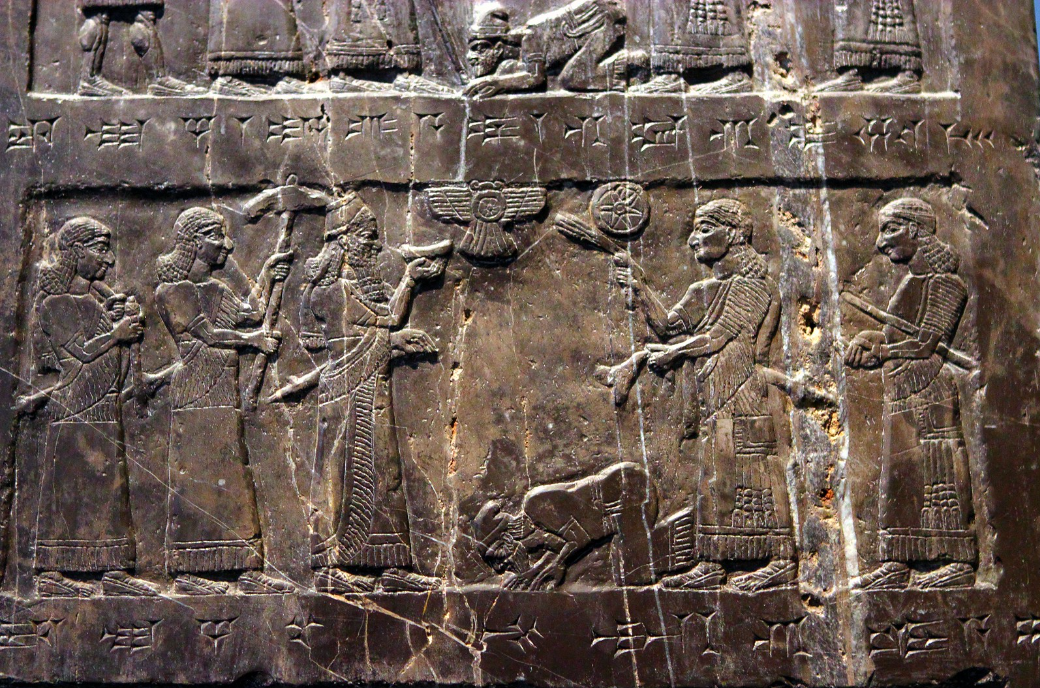
Asside from Jesus, there is historical evidence for over 100 of the people mentioned in the Bible.
When we consider archaeological evidence from a biblical perspective we see that time and again it supports the biblical account. Be it the price of slaves to the fate of a city, details in the Bible coincide with the archaeological evidence and repeatedly show that the Bible is real history.
If archaeology is something that interests you, you may be interested in reading
'Evidence for the Bible' by Clive Anderson and Brian Edwards to explore further. They also co-wrote
'Through the British Museum with the Bible'.
A quick consideration of miracles
Understandably, when reading the Bible many scientifically-minded people would question (or even scoff at) the accounts of miracles such as Jesus calming the storm, walking on water, of feeding 5,000 people with a few loaves of bread and some fish. However, given all of the evidence above, if we accept that an eternal God created everything out of nothing, in all it's incredible and perfect complexity, is it really beyond the realms of belief that he could manipulate that creation to demonstrate his presence to those He came to save?